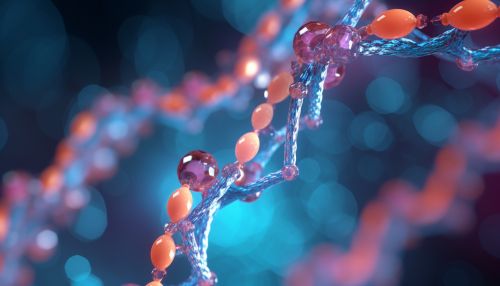Molecular Genetics
Introduction
Molecular genetics is a sub-discipline of biology that focuses on the structure and function of genes at a molecular level. The field studies how the genetic information is transferred from generation to generation and how the genes are expressed.
History
The history of molecular genetics dates back to the 19th century with the work of Mendel who conducted experiments on pea plants, laying the foundation for the science of genetics. However, the term "molecular genetics" came into use with the advent of molecular biology in the mid-20th century.
Structure of Genes
Genes are composed of DNA, a long molecule that carries genetic instructions. DNA is made up of four types of nitrogen bases: adenine (A), thymine (T), guanine (G), and cytosine (C). These bases pair up with each other to form the structure of DNA.


DNA Replication
DNA replication is the process by which a DNA molecule is copied to produce two identical replicas. This process is vital for cell division and growth. The replication process involves several enzymes including DNA polymerase and helicase.
Gene Expression
Gene expression is the process by which the information stored in a gene is used to produce a functional product, usually a protein. This process involves two main steps: transcription and translation.
Genetic Variation
Genetic variation is the difference in DNA sequences between individuals within a population. These variations can occur through mutations, genetic recombination, and gene flow. Genetic variation is a key factor in evolution as it allows natural selection to drive adaptation to changing environments.
Molecular Genetics Techniques
There are several techniques used in molecular genetics, including DNA sequencing, polymerase chain reaction (PCR), and genetic engineering. These techniques have revolutionized the field of genetics and have numerous applications in medicine, agriculture, and forensic science.
Applications of Molecular Genetics
Molecular genetics has wide-ranging applications in various fields. In medicine, it is used in genetic testing, gene therapy, and personalized medicine. In agriculture, it is used in the development of genetically modified crops. In forensic science, it is used in DNA profiling.
Future Directions
The field of molecular genetics continues to evolve with advancements in technology and our understanding of the genome. The future of molecular genetics holds promise for further breakthroughs in medicine, agriculture, and other fields.
